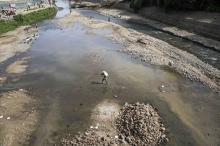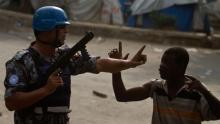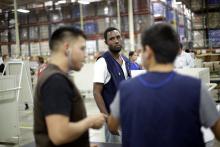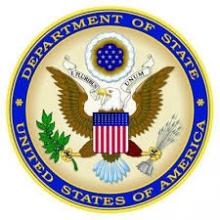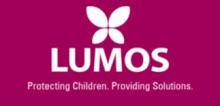The Heroes of Burial Road
In the excellent New York Times article below, Catherine Porter states that death is a plentiful resource in Haiti given that the life expectancy of Haitian is 63.4 years - twelve years below the Latin American and Caribbean average. Dying in Haiti is expensive - families often take out loans at exorbitant rates to provide funerals for loved ones while other families are forced to abandon their remains. These bodies would be dumped like garbage, as was the case in the past, but for the efforts of St. Luke Foundation volunteers who transport them for simple, cost-free burials. Haiti is full of heroes, and the volunteers who provide dignity in death to those who lacked it in life, are amongst them.



